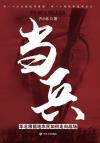
Qi Xiaolin 齐小林
Chengdu: Sichuan People’s Publishing House, 2015
Reviewed by Guan Yue (Ph.D. Candidate, Department of Government and Public Administration, The Chinese University of Hong Kong)
In Mainland China, peasants in the Communist base areas are conventionally portrayed as revolutionary, and soldiers in the Communist armed forces are stereotyped as courageous. Drawing on impressively rich archives in Hebei province, Qi Xiaolin’s book documents the real lives of peasants in the North China base area who joined the army during the Second Sino-Japanese War (1937–1945) and the Chinese Civil War (1946–1949). Not only does this book speak up for the voiceless participants swept up in these wars, but it also sheds light on the tensions between social norms and the revolutionary regime in rural China and the historical continuity of governance from the Chinese Communist Party’s (CCP) formative years to today.
While the Chinese Nationalist Party drafted people into the mass army, the CCP relied on a system of voluntary military service. Qi starts the book by investigating why peasants in the base areas volunteered to put their lives on the line. Based on work reports, he shows that the two orthodox explanations—patriotism and class consciousness—only account for a small proportion. Earning a living was the mainspring for many, and some cadres even suggested promoting the food and clothing of the troops to attract the poor to enlist. Several additional driving forces are also identified. For example, ambitious peasants believed that serving in the army could raise their social status, some simply considered fighting the war to be far more adventurous than tilling the land, and those who had conflicts with family members and other villagers exploited this opportunity to escape their social network. Through Qi’s telling narrative, the romanticized peasantry of the mainstream discourse becomes humanized.
Despite the above motivations, a great number of peasants remained reluctant to join the army due to the fear of death and family attachments. Qi then examines how the CCP’s cadres at the rear answered the call for recruiting soldiers from the front. He shows that mobilizing peasants to enlist was so unpopular that a few grassroots cadres fulfilled the task superficially. For instance, they might send the old, junior, or ill recruits, who would later be tested as physically unqualified and sent back. At the same time, some cadres fiercely competed for who could mobilize the most. In Yongnian county where 1,000-recruit quotas were assigned, the village cadres there claimed that they could gain 7,250 recruits. Here, students of contemporary China may note that the local cadres in the base areas were not wholehearted agents serving for the war and revolution; instead, they bore a remarkable resemblance to their counterparts of today.
Similarities between the past and present can also be found in the methods of mobilization. Qi indicates that, on the one hand, the CCP’s cadres endeavored to change the peasant’s views on the war and military service by persuasion. On the other hand, concrete benefits such as food and new clothes were offered as a stimulus. He also points out that, even though voluntary recruitment was the official guideline of the CCP’s wartime mobilization, deviation was commonplace. In particular, persuasion, when combined with social pressure within the community, might lead to coerced voluntarism. Moreover, by providing excessive material incentives, or even hiring peasants in other villages, recruits arguably resembled mercenaries rather than volunteers.
The second half of the book centers on peasants who had already joined the army. Qi reveals that, contrary to popular conception, desertion contributed to a large proportion of depletion in the CCP’s armed forces during both the Second Sino-Japanese War and the Chinese Civil War. In addition to the short supplies of basic goods and abuses in some troops, two other factors that brought about desertion deserve particular attention. The first concerns mentalities. As discussed, peasants went to the battlefield for complicated reasons. It became common for them to feel dispirited by the course of the war and frightened by its brutality. Qi argues that, by pouring out grievances and teaching current affairs, new soldiers seemed convinced that it was glorious to fight against Japan and the Nationalist army. However, the evidence in this regard is not as firmly grounded as in other parts throughout the book. Since mental coercion is supposed to be what the CCP specializes in, this section could have greatly contributed to China studies if Qi had relied more on the extensive archives he collected to scrutinize how the CCP changed its soldiers’ mentalities.
The other cause for desertion which Qi emphasizes is a widespread dissatisfaction with the promised preferential treatment for the soldiers’ dependents. Providing preferential treatment is important because after young men joined the army, their families were very likely to suffer from manpower shortages. Qi remarks that social norms in village communities such as evenness hindered putting preferential treatment into effect. As such, the relations between rural society and the revolutionary regime in the wartime were more strained than one might assume, although Qi also suggests that the CCP could take advantage of social norms to implement preferential treatment. A successful practice in some villages was mobilizing the relatives and neighbors of the soldiers to help the dependents farm the land.
Overall, the original topic, solid evidence, and vivid accounts makes this book a must-read for anyone interested in China’s warfare and revolution. Given the historical parallels between the past and present, those who study contemporary China can also benefit substantially from this book. In the epilogue, Qi confessed that some scholars challenged him by asking how, if the CCP did so poorly in its base areas, did it managed to emerge victorious? To answer this question, it might be worthwhile to draw a comparison between the military recruitment in the CCP-controlled base areas and that in the Chinese Nationalist Party-held regions.
